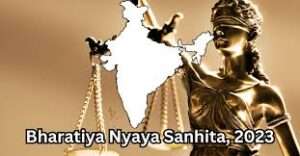
This article has been written by Nooransh Grover.

Introduction
The Delhi High Court in its recent judgment in DD Global Capital Pvt Ltd. & Ors v. M/s SE Investment Ltd. dated September 13, 2023 ruled that when loan liabilities are transferred through an agreement, the arbitration clause contained therein shall also be transferred. This decision holds significance in the light of the Doctrine of Separability which propounds that the arbitration clause or agreement attached to the main contract has its separate legal existence. The doctrine of separability assumes importance due to the fact that breach of contractual obligations stipulated in the main contract which renders the contract non-functional, shall not have any detrimental effect on the arbitration clause or agreement attached thereto meaning thereby, the affected party can invoke the arbitration clause or the arbitration agreement in a situation of breach of contractual obligations. But this doctrine has different aspects to it also, which shall be dealt subsequently in the course of elucidating the recent Delhi High Court’s ruling.
Howdy, you all! Welcome to your page of knowledge. You will find different legal blogs, the latest news, current affairs, and many more on this group. This is the initiative to develop the knowledge of the law in the world, especially for you.
Facts of the Case
DD Global Capital Pvt Ltd. (appellant) approached M/s SE Investment Ltd. and availed a secured loan of Rs. 3.20 crores along with interest at 25%@annum pursuant to a contract in 2008. The loan was secured by personal guarantees of other appellants and a land was also mortgaged for the said purpose. The loan was to be repaid within a period of 1 year from the date of disbursement. The contract contained an arbitration clause also. The respondent, upon default by the appellant, restructured the loan by re-financing the appellant in the form of five new loan agreements by charging interest at 30%@annum in 2010.
Since default took place, the respondent invoked arbitration clause on all five agreements and common arbitration proceedings were conducted the arbitrator. The arbitrator passed an award in favor of the respondent requiring the appellant to pay Rs 9.10 crores (total loan amount by virtue of 2008 and 2010 loan agreements) along with interest at 18%@annum.
Appellant filed an application under Section 34 of the Arbitration and Conciliation Act before the Single Judge bench of the Delhi High Court which was dismissed.
Hence, the appellant approached the Division Bench of the Delhi High Court.
Contention of the Appellant
Denial of Disbursement of Loan amount
The appellants contented that no loan amount was disbursed on behalf of the respondent. The appellants contended that the appellants have failed to provide any documentary evidence to prove the happening of the transaction. This argument portrays the appellant’s attempt to invalidate the entire transaction and prove that the transactions in the 2010 agreement never took place which would in turn invalidate the arbitration proceedings itself as no cause of action had arisen.
Doctrine of Separability
The appellant contended application of the doctrine of separability shall tantamount to the arbitrator not having jurisdiction to arbitrate upon the matter since the 2008 loan agreement did not contain an arbitration clause. The arbitrator cannot have jurisdiction upon the twin-claim in the particular matter because the 2008 loan agreement was bereft of an arbitration clause thereby not laying down jurisdiction to the arbitrator to decide on the matter.
Claim barred by Limitation Period
It was contended on behalf of the appellant that the claims are barred by limitation which were subsequently set aside by the Arbitral Tribunal.
No mention of 2008 Loan agreement in blank debit vouchers
The appellants submitted that the blank debit vouchers which were provided for the purpose of recording the banking details of the appellant whereby the loan amount was to be disbursed didn’t mention about the 2008 loan agreement. Thereby, the appellants contented that there exists no connection between the said loan agreements
Award not maintainable as per 2015 Amendment
The appellant contended that as per the 2015 Amendment in the Arbitration and Conciliation Act, 1996, a party cannot unilaterally appoint an arbitrator which in the present case has been done by the respondent. Due to these reasons, the appellant contended that the award must be set aside.
Judgment of the Division Bench
The court has not accepted the argument of the appellant that the loan amount was not disbursed. The court held that the conclusion of the arbitrator is correct with respect to validating that the terms of the agreement were of restructuring the loan which was not paid as per the 2008 loan agreement. The court held that the appellant has continued with the proceedings post-2015 amendment thereby tacitly consenting to the continuation of arbitration proceedings. The court dismissed the application under Section 34 filed by the applicant.
Analysis
The findings of the Arbitrator, the Single Judge and the Division bench are appropriate and accurate. The appellants, by not objecting to the continuation of the arbitral proceedings, have waiver their right to object as per Section 4 of the Act. The appellant further cannot apply the doctrine of separability in the present case. The doctrine of separability was devised so as to provide an immunity to the arbitration clause/agreement from the contractual breaches of the party. In the present case, this is not so.
The appellant cannot put forth an argument that suggests to separate 2 agreements which form a part of the same transaction. The facts of the case suggests that the two agreements were intertwined into a single loan transaction but due to the default of appellant. Thus, the Delhi High Court has laid down an excellent precedent on the doctrine of separability by laying down that this doctrine shall not be applicable as a universal rule but shall depend upon the facts and circumstances of the case.
The re-structuring of the loan agreement shall not be treated as a separate agreement altogether but has to be read along with the original loan agreement thereby having established a co-relation between the arbitration clause in the original agreement and the loan agreement for the purpose of re-structuring the original loan. As per the previously mentioned circumstances, it is well established that even if the subsequent loan agreement formulated for the purpose of re-structuring does not have an arbitration clause, the arbitration clause in the original loan agreement is sufficient to establish the jurisdiction of the arbitrator to arbitrate upon the matter.
LegalOnus
Aequitas Sequitur Legem






